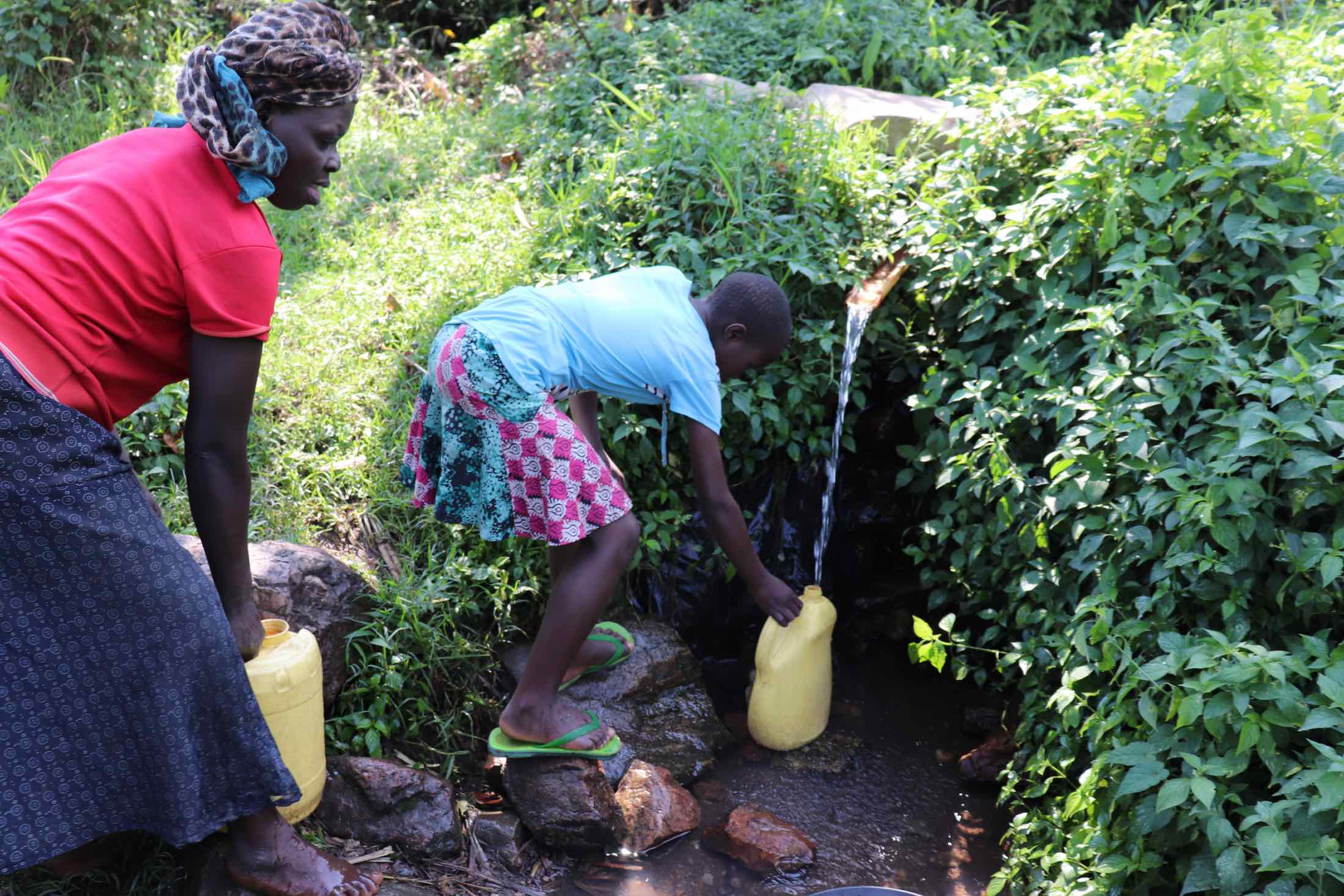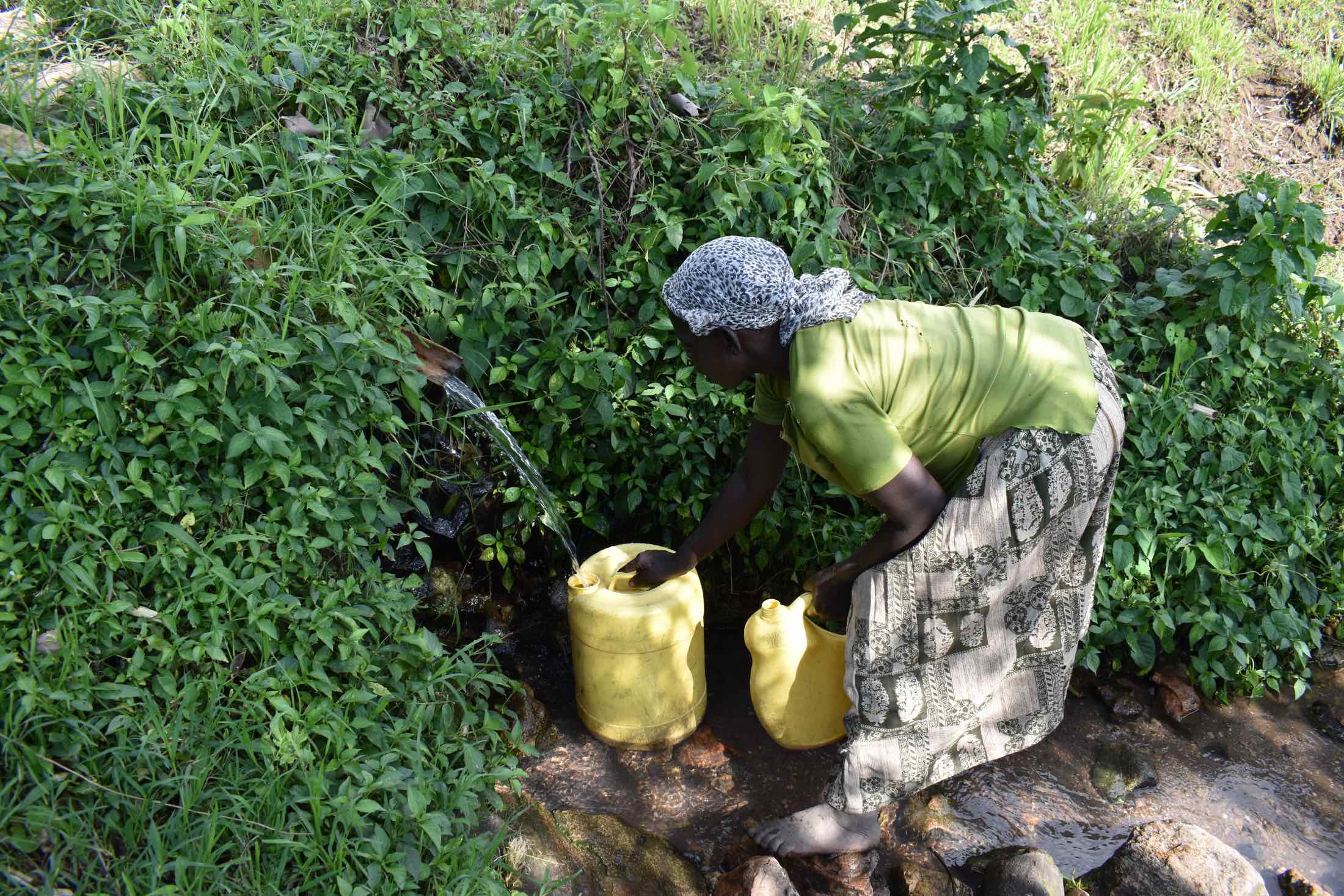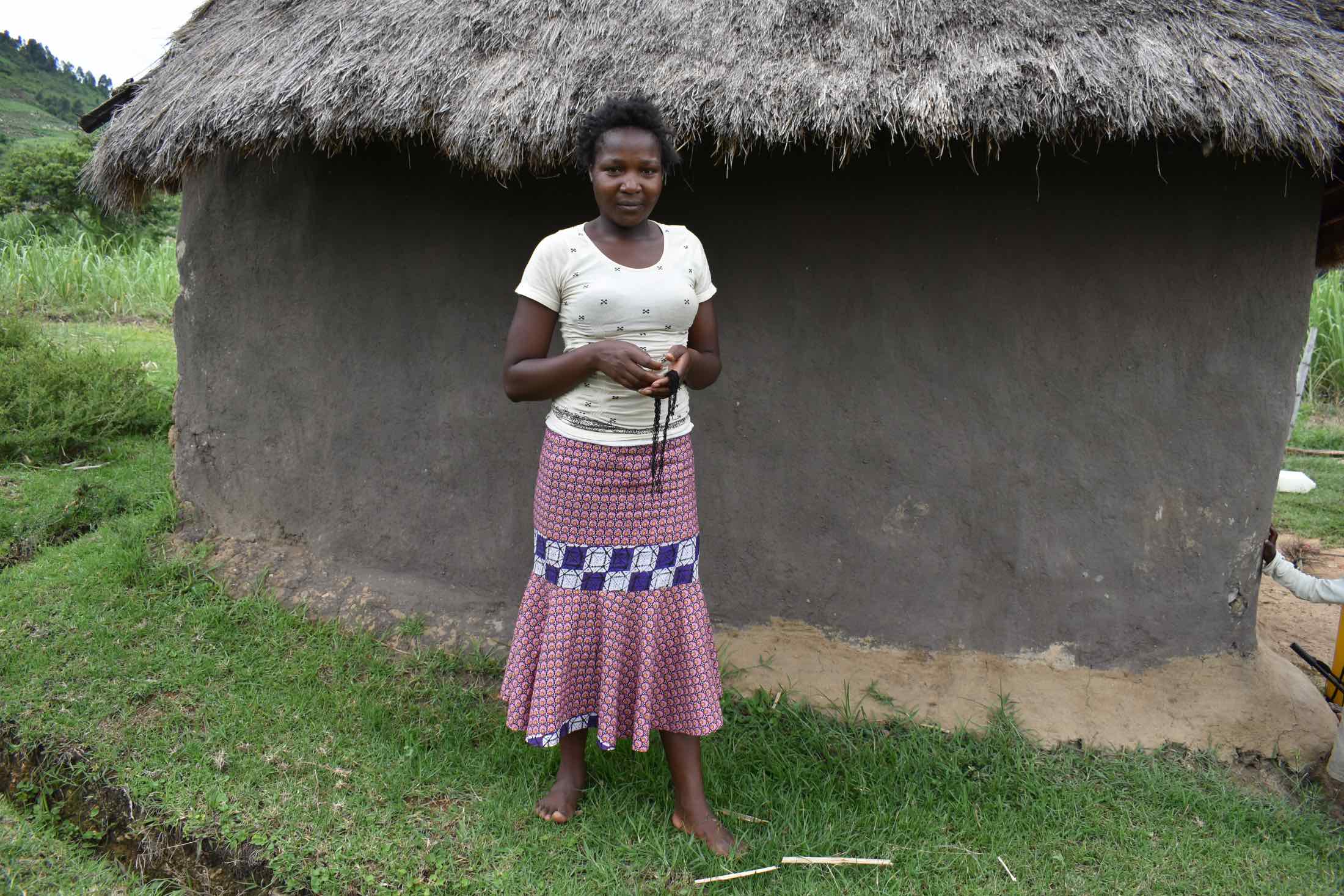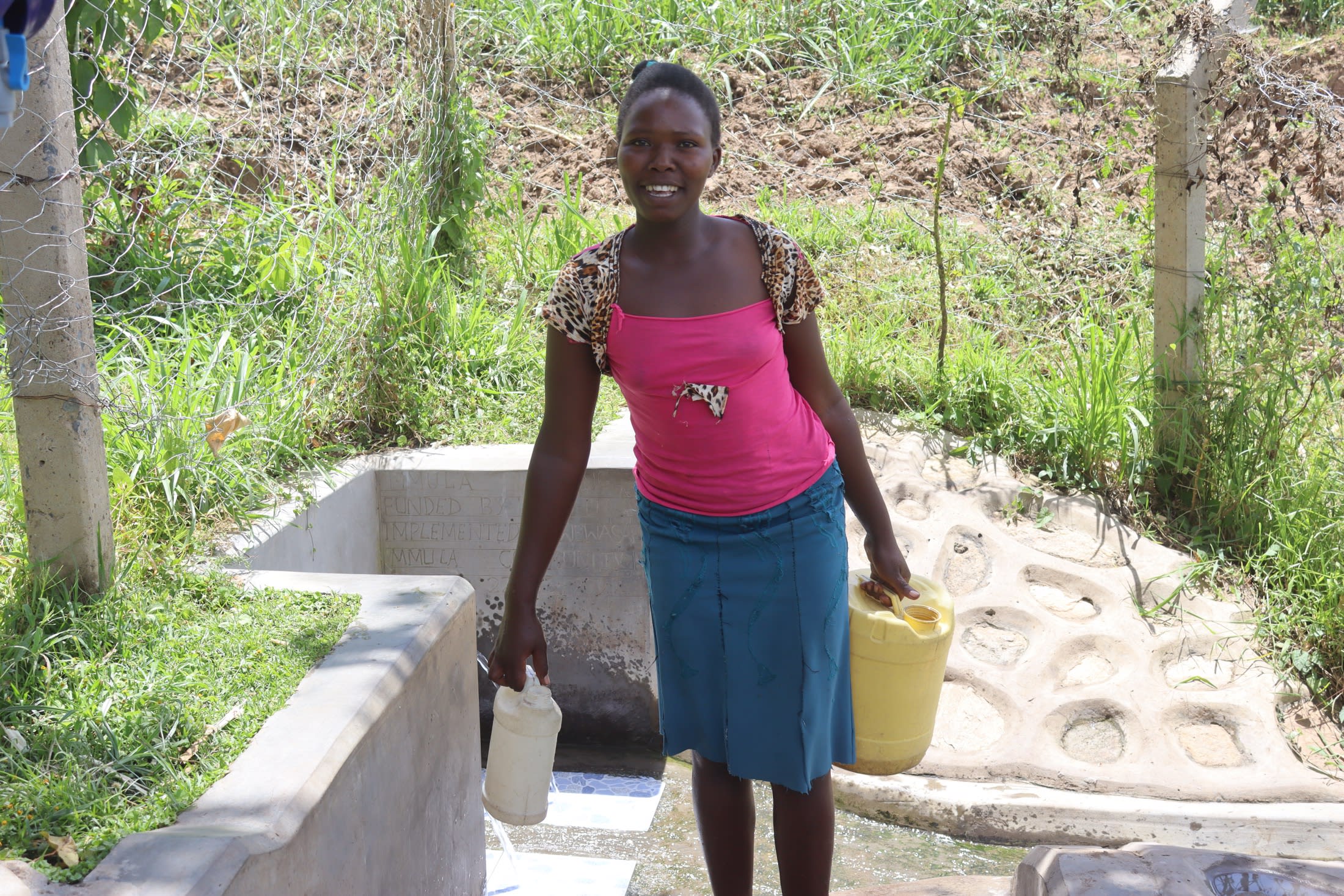The hills of the Nandi Escarpment surround the Chiveli community with a cool and wet climate.
Most community members farm crops such as sugarcane, maize, cassava, or sweet potatoes and sell the produce from their land. Those that do not have land for farming do casual labor to make a living.
The Mmula Spring is a stony, bushy area: a habitat for animals like snakes, which pose a risk to those who collect water there.

"Lack of clean water and safety at the spring are the things that one cannot miss. At the spring, it is very risky to send children. Even adults go there, and when they see a scary snake, some fall down to the extent of breaking their containers," Esther Mula (shown below), a local farmer.

The users visit the spring at least four times a day. Some fetch water in the morning and again at noon, while others fetch water in the morning and again in the evening. Community members have improvised (using a banana stalk) a discharge pipe to ease the accessibility of water.

"During school days, it is very difficult to get back to school on time. This is because during lunch breaks, I go home, fetch water for house chores and give some to the animals, and it makes me get back to school late," said Valary A., 15, (shown above).
The reported health effects of water from this contaminated, unprotected spring are waterborne illnesses such as stomachache, especially in young children and the elderly. Due to the health effects, many families suffer financial crises, and energy is drained taking care of the sick.
What We Can Do:
Spring Protection
Protecting the spring will help provide access to cleaner and safer water and reduce the time people have to spend to fetch it. Construction will keep surface runoff and other contaminants out of the water. With the community’s high involvement in the process, there should be a good sense of responsibility and ownership for the new clean water source.
Fetching water is a task predominantly carried out by women and young girls. Protecting the spring and offering training and support will, therefore, help empower the female members of the community by freeing up more of their time and energy to engage and invest in income-generating activities and their education.
Training on Health, Hygiene, COVID-19, and More
To hold trainings during the pandemic, we work closely with both community leaders and the local government to approve small groups to attend training. We ask community leaders to invite a select yet representative group of people to attend training who will then act as ambassadors to the rest of the community to share what they learn. We also communicate our expectations of physical distancing and wearing masks for all who choose to attend.
The training will focus on improved hygiene, health, and sanitation habits in this community. We will also have a dedicated session on COVID-19 symptoms, transmission routes, and prevention best practices.
With the community’s input, we will identify key leverage points where they can alter their practices at the personal, household, and community levels to affect change. This training will help to ensure participants have the knowledge they need about healthy practices and their importance to make the most of their water point as soon as water is flowing.
Our team of facilitators will use a variety of methods to train community members. Some of these methods include participatory hygiene and sanitation transformation, asset-based community development, group discussions, handouts, and demonstrations at the spring.
One of the most important issues we plan to cover is the handling, storage, and treatment of water. Having a clean water source will be extremely helpful, but it is useless if water gets contaminated by the time it is consumed. We and the community strongly believe that all of these components will work together to improve living standards here, which will help to unlock the potential for these community members to live better, healthier lives.
We will then conduct a small series of follow-up trainings before transitioning to our regularly scheduled support visits throughout the year.
Training will result in the formation of a water user committee, elected by their peers, that will oversee the operations and maintenance of the spring. The committee will enforce proper behavior around the spring and delegate tasks that will help preserve the site, such as building a fence and digging proper drainage channels. The fence will keep out destructive animals and unwanted waste, and the drainage will keep the area’s mosquito population at a minimum.

 Protected Spring
Protected Spring
 Rehabilitation Project
Rehabilitation Project






































